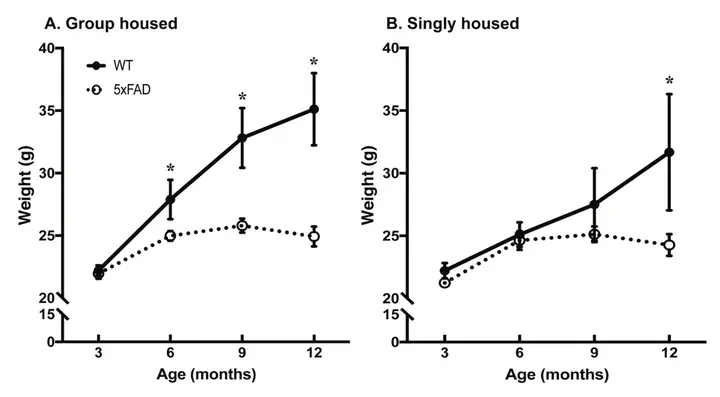
Abstract
In addition to cognitive decline, patients with Alzheimer’s disease (AD) exhibit sensory, motor, and neuropsychiatric deficits. Many AD patients also show weight loss, suggesting that AD may involve a metabolic syndrome. The 5xFAD mouse model shows age-related weight loss compared to wildtype controls, and thus may exhibit metabolic dysfunction. This longitudinal study measured age-related weight loss in female 5xFAD and B6SJL/JF2 wild-type mice from 3 to 12 months of age, and examines some of the behavioural and physiological phenotypes in these mice that have been proposed to contribute to this weight loss. Because some mice had to be singly housed during the study, we also examined genotype by housing interactions. The 5xFAD mice weighed less and ate less than WT littermates starting at 6 months of age, exhibited less home cage activity, had higher frailty scores, less white adipose tissue, and lower leptin expression. At 9 and 12 months of age, heavier 5xFAD mice performed better on the rotarod, suggesting that metabolic deficits which begin between 6 and 9 months of age may exacerbate the behavioural deficits in 5xFAD mice. These results indicate that the 5xFAD mouse is a useful model to study the behavioural and metabolic changes in AD.